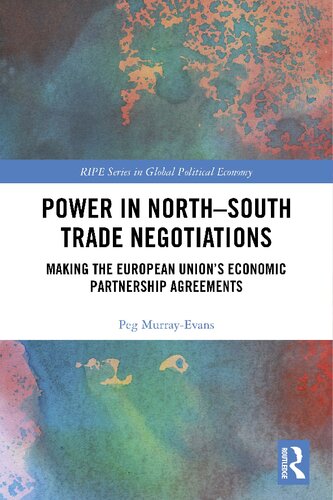

Most ebook files are in PDF format, so you can easily read them using various software such as Foxit Reader or directly on the Google Chrome browser.
Some ebook files are released by publishers in other formats such as .awz, .mobi, .epub, .fb2, etc. You may need to install specific software to read these formats on mobile/PC, such as Calibre.
Please read the tutorial at this link. https://ebooknice.com/page/post?id=faq
We offer FREE conversion to the popular formats you request; however, this may take some time. Therefore, right after payment, please email us, and we will try to provide the service as quickly as possible.
For some exceptional file formats or broken links (if any), please refrain from opening any disputes. Instead, email us first, and we will try to assist within a maximum of 6 hours.
EbookNice Team

Status:
Available0.0
0 reviewsAdvancing a constructivist conceptual approach, this book explains the surprising outcome of the Economic Partnership Agreements (EPAs) between the European Union and developing countries in Africa, the Caribbean and the Pacific (the ACP countries). Despite the EU’s huge market power, it had limited success with the EPAs; an outcome that confounds materialist narratives equating trade power with market size.
Why was the EU unable to fully realise its prospectus for trade and regulatory liberalisation through the EPA negotiations? Emphasising the role of social legitimacy in asymmetrical North–South trade negotiations, Murray-Evans sets the EPAs within the broader context of an institutionally complex global trade regime and stresses the agency of both weak and strong actors in contesting trade rules and practices across multilateral, regional and bilateral negotiating settings. Empirical chapters approach the EPA process from different institutional angles to explain and map the genesis, design, promotion and ultimately limited impact of the EU’s ambitious prospectus for the EPAs.
This volume will be particularly relevant to students and scholars of international trade and development and the EU as an international actor, as well as those researching international political economy, African politics and international trade law.